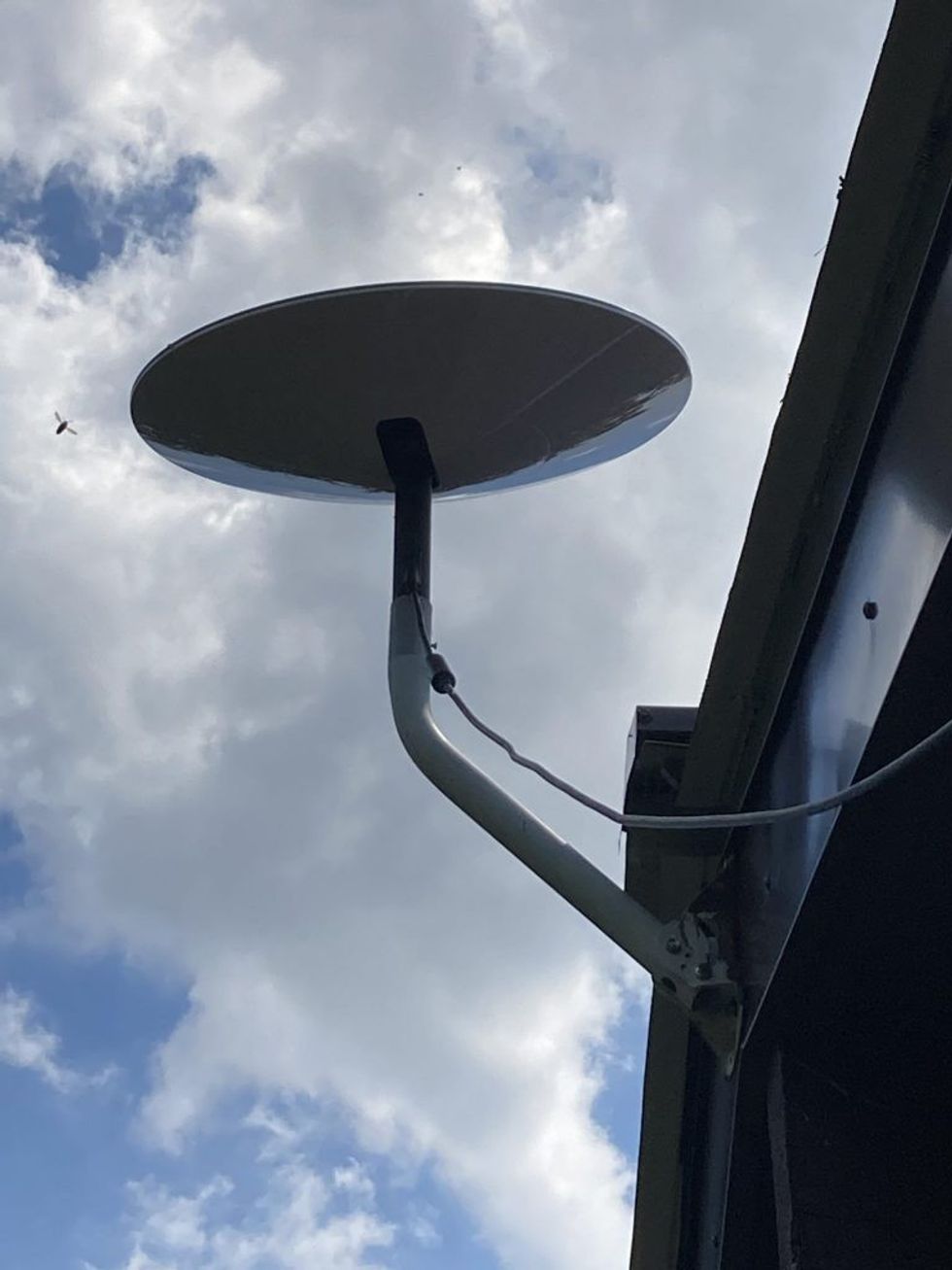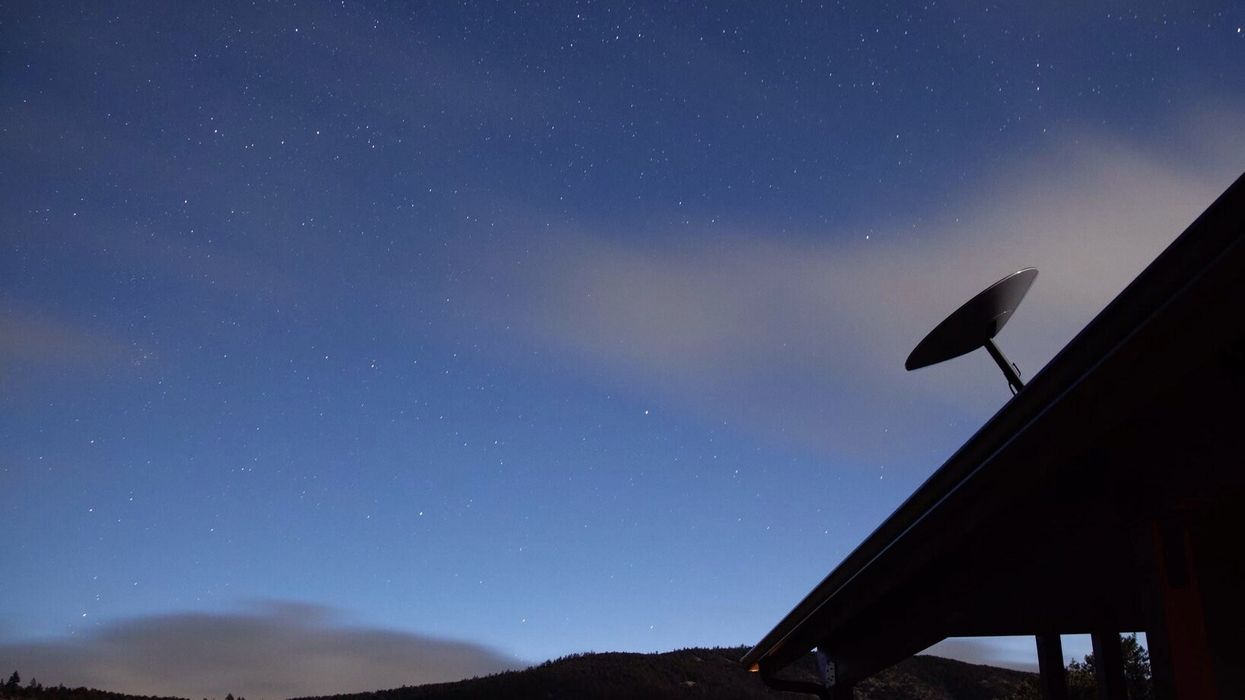A couple of months back I wrote about the struggles many in cottage country face when it comes to finding a reliable internet connection.
And, given how much the pandemic has driven the rush to rural living, the ability to connect to something at least resembling 'high-speed' could mean the difference between being able to maintain a job from a new location and, well... Not.
As I mentioned when first covering the subject, the government wants all Canadians to have access to broadband levels of “at least 50 Mbps for downloads and 10 Mbps for uploads.” They also expect this to be the case for 90% of Canadians by the end of 2021. If this is to happen for thousands and thousands of Ontarians, Elon Musk and his Starlink internet service are going to have to play a part.
First things first, Musk's Starlink is a satellite internet service that plans to launch throughout several parts of rural Canada this year, after finding approval from the CRTC in the fall of 2020. The system depends on the strategic placement of several low-orbit satellites (Starlink says its satellites are over 60 times closer to Earth than traditional satellites) that is still ongoing. According to the Starlink website, as they "launch more satellites, install more ground stations and improve [their] networking software, data speed, latency and uptime will improve dramatically."
READ: Can Elon Musk Really Fix Cottage Country’s Internet Problem?
While Starlink is not yet widely available, some beta testers -- in the US, Canada, and beyond -- have been using the service this spring. One of those beta testers is Lyne Archambault, a French teacher living on a 100-acre farm 15 minutes south of Lindsay, Ontario.
"I don’t know exactly how my husband got on to this, but he’s an investor and discovered that Musk wanted to do a beta-test [for Starlink]. So he contacted Starlink."
Once approved, Archambault and her family paid $800 for the satellite dish they needed to link up to Starlink's service.
"He's got some real cahonas," Archambault says of Musk. "You’re going to pay me $800… and then you’re going to install it yourself," she says laughing in reference to Musk's customer service strategy. Indeed, everything necessary to connect to Starlink simply showed up in a box with instructions; no service team member was going to show up to do the installation for them.
According to their site:
The Starlink kit includes everything you need to connect to the internet including your Starlink, wifi router, power supply, cables and mounting tripod. The mounting tripod is designed for ground level installation, or to support a quick start setup to test your internet connection. For users that require a roof install, roof mounts are available by signing into your account.
That said, once set up, it sounds as though the effort is well worth it.

"We've been with Bell and were getting maybe 1 Mbps [megabits per second], then they built a tower down the road and we got up to about 20 Mbps, even though they were promising up to 150 Mbps. A speed test [on Starlink] is showing anywhere between 50 Mbps and 130 Mbps."
For context, speeds of at least 25 Mbps are usually required to stream in HD. Add another user or two trying to stream at the same time and you'll definitely want to be looking at more than 100 Mbps.
For Archambault, teaching via Zoom calls requires a strong connection, something she wasn't getting once her kids returned home and she had multiple users trying to all access the Bell connection.
Of course, this is still beta that we're talking about. It's not a perfect system yet.
"The only downfall is that the entire satellite web isn't up yet so occasionally everything just drops. Once we notice that it’s a bit more consistent, we’ll move full time over to them from Bell," Archambault says.
The family has been using Starlink for about two months now.
Of course, there's also the cost. For their Bell service, Archambault and her family were paying approximately $90 a month, while Starlink is $145 per month plus the initial investment of $800 for the set up. Of course, that's a small price (difference) to pay if it allows for a successful, high-speed connection every time you need the internet, especially if your job quite literally depends on it.
"They're being quite transparent about the entire process," Archambault adds. "We get email updates telling us things like ‘We’ve added X number of new satellites’".
While it's not yet clear when Starlink will be ready to roll out across rural Canada in a more aggressive and complete way, early indications suggest that when it does, it will be highly sought after. Given the extreme rise in the popularity of cottages and recreational properties over the past year, a piece of paradise is worth just that much more when you're able to spend a week or two (or all of them) staying connected from there.
As for probably the most asked question when it comes to Starlink service?
"No weather issues so far, and that was a rainy May!" says Archambault.
Musk has spent the last decade disrupting the auto industry, can he do the same for the internet? We'll see, but based on beta results, I'm certainly willing to pay to find out.




















